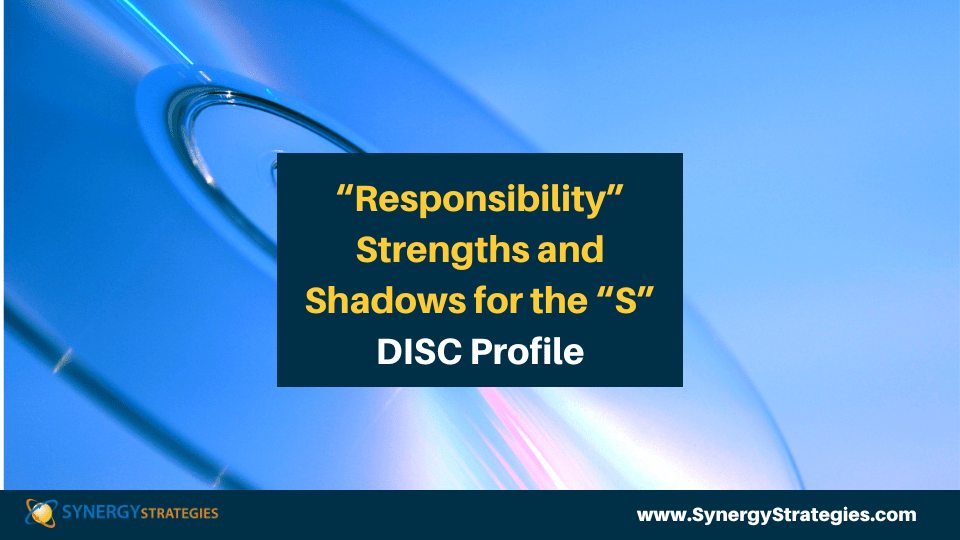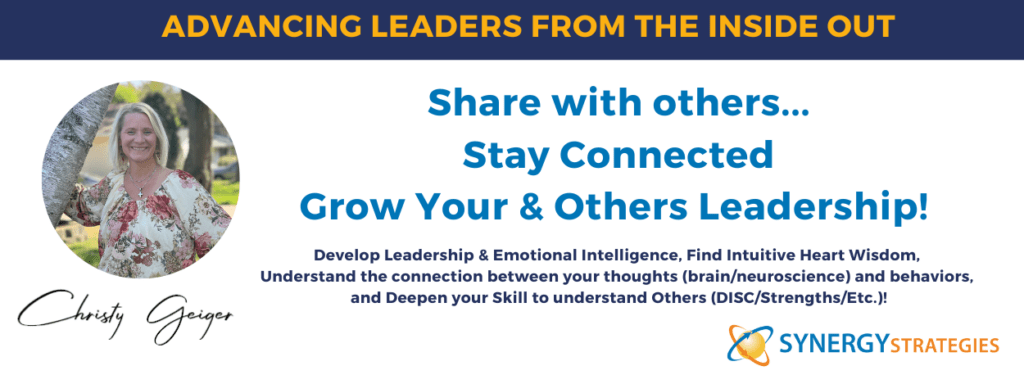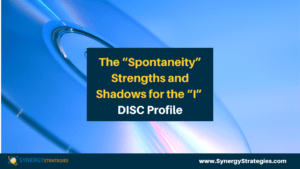Understanding the “S” Profile in DISC
The “S” (Steady) personality type in DISC is known for being dependable, loyal, and highly responsible. These individuals are often the glue that holds teams, families, and organizations together. They thrive in stable, supportive environments and tend to prioritize harmony, relationships, and consistency. Their natural ability to care for others, support stability, and maintain a strong work ethic makes them invaluable in any setting.
Among the DISC profiles, the “S” is the most common, not implying they are one of many, but rather highlighting the importance of valuing and understanding them, because it is inevitable you are working or living with one. Understanding what is important to them, helps them to feel safe and set up for success is essential.
Highlighting “Responsibility” in the “S” Profile
Every personality profile has key traits that serve as both an asset and a potential hiccup. For the “S” one of the more universal traits is responsibility. This is a signature strength. It makes them incredibly reliable, trustworthy, and committed. However, this same trait can turn into a blind spot when it begins to consume leading to overload, burnout, and frustration. Commonly, the “S’s” desire is not this, but the feeling of responsibility for something done on time, done well, on their watch, etc. causes a struggle for the S to hyper focus on ensuring every requirement is met, asking for help, delegating, etc. Understanding this dynamic helps individuals with a strong “S” profile navigate their leadership, relationships, and personal well-being more effectively.
Ask yourself:
- Do you ever find yourself taking on more than your fair share of work to keep things running smoothly?
- Do you ever feel resentful when others do not seem as committed or responsible as you are?
- Do you find it difficult to say no, even when you want to and are overwhelmed, but feel you have no choice and are left with the responsibility?
If you answered “yes” to these, you might be experiencing both the power and the shadow of the “S” profile’s responsibility.
The Strength of “Responsibility”
Being highly responsible is an incredible asset. People with this trait are often the backbone of their organizations, the ones others rely on when things need to get done. They follow through, support others, and ensure that projects and people are taken care of. Their reliability builds trust, making them natural leaders and key contributors in any team. An “S”; profile brings a deep sense of commitment and follow-through that ensures stability and consistency in teams. They are committed to taking time to understand what is needed which helps to create a sense of safety and dependability, often fostering strong relationships and a collaborative work culture. Others trust them because they do what they say they will do.
The Shadow of “Responsibility”
However, the shadow of responsibility is over-functioning, taking on too much, avoiding delegation, and feeling like they must hold everything together. This can create stress and resentment when others do not meet their level of commitment. Additionally, their desire to avoid conflict can lead to enabling inefficiencies or underperforming teams, as they would rather do the work themselves than address the underlying issue.
When this shadow emerges, they may feel exhausted, unappreciated, and frustrated. They might even believe that if they do not do it, no one else will, which can lead to feeling taken advantage of or dumped on in the workplace. This is why learning to balance responsibility is critical for long-term success and well-being.
For Someone Who Leads with “Responsibility”
- Communicate Clearly: Express needs and expectations rather than assuming others will notice or step up. Having tough conversations early actually decreases conflict even though it can feel rock at first.
- Be Open to Support: Recognize that delegation is a strength, not a weakness.
- Notice Balance: Set boundaries and co-design to avoid burnout and resentment.
- Recognize Growth in Others: Allow others to take ownership rather than over-functioning for them.
Closing Thoughts & Reflection
If this is you, reflect on:
- Where am I taking on more responsibility than I need to?
- How can I empower others rather than take over?
- What boundaries do I need to set to maintain my well-being?
The “S” profile’s deep sense of responsibility is a valuable gift. No one wants a burned-out and disgruntled team member, so working hard to make sure to communicate your needs, asking for support, and working with others is essential to building strong teams and sustainability for yourself and others.
https://www.synergystrategies.com/learn/disc-values-assessment/






